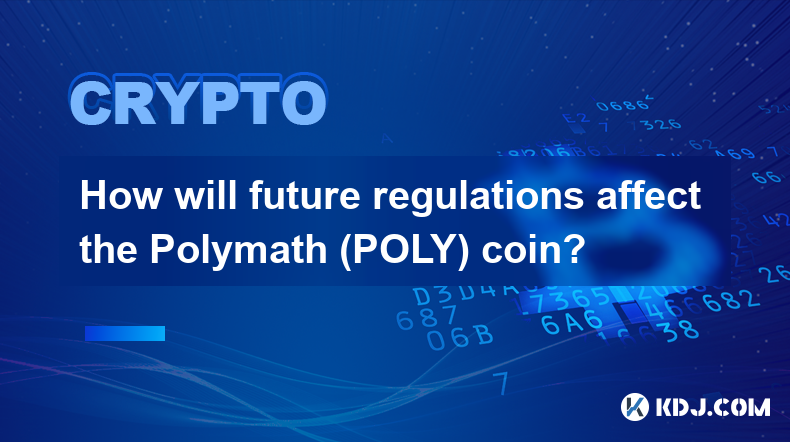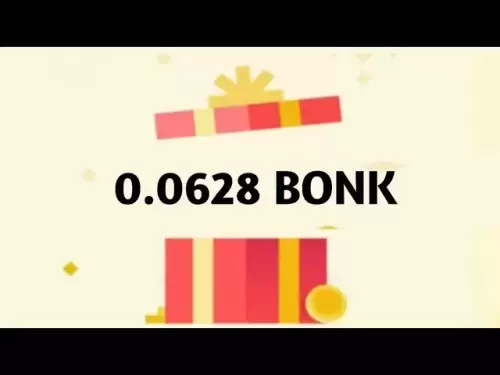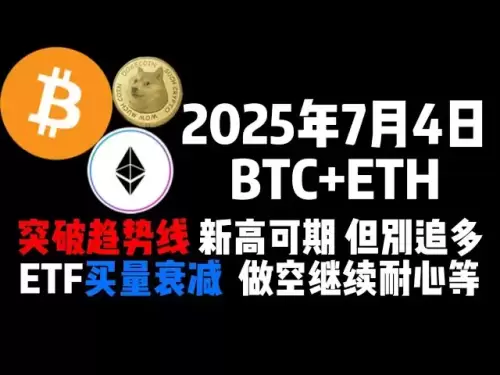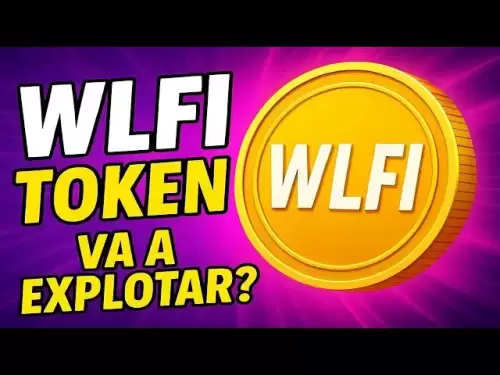-
 Bitcoin
Bitcoin $107,775.9723
-1.52% -
 Ethereum
Ethereum $2,503.0264
-2.92% -
 Tether USDt
Tether USDt $1.0004
0.01% -
 XRP
XRP $2.2122
-1.83% -
 BNB
BNB $653.0341
-0.74% -
 Solana
Solana $146.9585
-2.52% -
 USDC
USDC $1.0000
0.00% -
 TRON
TRON $0.2830
-0.44% -
 Dogecoin
Dogecoin $0.1630
-4.35% -
 Cardano
Cardano $0.5716
-3.30% -
 Hyperliquid
Hyperliquid $37.8958
-5.54% -
 Sui
Sui $2.8738
-3.68% -
 Bitcoin Cash
Bitcoin Cash $479.5293
-3.18% -
 Chainlink
Chainlink $13.0885
-4.05% -
 UNUS SED LEO
UNUS SED LEO $9.0483
0.30% -
 Avalanche
Avalanche $17.7365
-4.04% -
 Stellar
Stellar $0.2360
-2.55% -
 Toncoin
Toncoin $2.7891
-2.55% -
 Shiba Inu
Shiba Inu $0.0...01135
-3.58% -
 Litecoin
Litecoin $86.6089
-3.25% -
 Hedera
Hedera $0.1546
-2.55% -
 Monero
Monero $314.6552
-1.87% -
 Dai
Dai $1.0000
0.00% -
 Polkadot
Polkadot $3.3599
-4.40% -
 Ethena USDe
Ethena USDe $1.0001
-0.03% -
 Bitget Token
Bitget Token $4.4063
-3.62% -
 Uniswap
Uniswap $6.9380
-8.98% -
 Pepe
Pepe $0.0...09560
-4.31% -
 Aave
Aave $261.8087
-5.38% -
 Pi
Pi $0.4702
-4.48%
How will future regulations affect the Polymath (POLY) coin?
The regulatory landscape for security tokens like POLY is evolving, with potential impacts on issuance, liquidity, and market value, requiring issuers and investors to adopt proactive compliance strategies to navigate evolving regulatory requirements and mitigate risks.
Jan 07, 2025 at 05:22 pm

Key Points:
- Potential regulatory impacts on Polymath (POLY)
- Regulatory landscape for security tokens
- Compliance strategies for POLY issuers and investors
- Impact on POLY's market value and liquidity
- Future regulatory trends and their implications for POLY
Potential Regulatory Impacts on POLY:
- Classification as a security: POLY could be classified as a security under existing regulations, subjecting issuers and investors to registration, reporting, and disclosure requirements.
- Increased scrutiny of token sales: Regulations may mandate KYC/AML procedures, due diligence on investors, and adherence to specific registration exemptions.
- Restrictions on retail investors: Retail investors may face restrictions on investing in POLY or may be required to meet certain eligibility criteria.
- Compliance costs: Issuers and investors may incur significant compliance costs associated with registration, reporting, legal counsel, and KYC/AML procedures.
Regulatory Landscape for Security Tokens:
- Securities and Exchange Commission (SEC): The SEC has classified several ICOs as securities offerings, establishing precedent for regulating token sales.
- Financial Industry Regulatory Authority (FINRA): FINRA is working on developing regulatory frameworks for security tokens, focusing on investor protection and market surveillance.
- Global regulatory efforts: International regulatory bodies are collaborating to establish harmonized regulations for security tokens, such as the International Organization of Securities Commissions (IOSCO).
Compliance Strategies for POLY Issuers and Investors:
- Obtain legal advice: Consult with experienced securities counsel to determine the appropriate regulatory framework for POLY offerings.
- Conduct due diligence: Perform thorough due diligence on investors to ensure compliance with KYC/AML requirements.
- Adhere to regulatory exemptions: Consider available registration exemptions, such as Regulation D, to limit regulatory burdens.
- Implement risk management practices: Establish risk management systems to identify and mitigate potential regulatory compliance risks.
Impact on POLY's Market Value and Liquidity:
- Increased investor confidence: Clear regulation can enhance investor confidence and attract new participants, potentially driving up POLY's market value.
- Reduced issuance risk: Issuers may face lower issuance risk with increased regulatory clarity, potentially increasing token supply.
- Improved liquidity: Regulatory compliance can facilitate institutional participation, providing greater liquidity and depth to POLY's markets.
- Potential price volatility: Regulatory changes could introduce uncertainty and lead to price fluctuations, particularly during transitions between regulatory frameworks.
Future Regulatory Trends and their Implications for POLY:
- Blockchain-specific rules: Regulators are exploring blockchain-specific regulations that could further tailor requirements to security tokens.
- Global regulatory convergence: International collaboration is expected to lead to more consistent regulatory approaches across jurisdictions.
- Technological advancements: Regulatory frameworks may need to adapt to emerging technologies, such as decentralized exchanges and tokenization platforms.
FAQs:
- Is POLY a security under existing regulations? This depends on the specific facts and circumstances of each token issuance, but POLY could potentially be classified as a security under certain definitions.
- What are the potential penalties for non-compliance with regulations? Non-compliance could result in fines, enforcement actions, and potential criminal charges.
- What can investors do to protect themselves? Investors should conduct thorough due diligence on issuers, understand the regulatory framework, and seek legal advice as needed.
- How will future regulations affect the long-term prospects of POLY? Clear and predictable regulations could enhance investor confidence and drive adoption, potentially benefiting POLY's long-term growth.
Disclaimer:info@kdj.com
The information provided is not trading advice. kdj.com does not assume any responsibility for any investments made based on the information provided in this article. Cryptocurrencies are highly volatile and it is highly recommended that you invest with caution after thorough research!
If you believe that the content used on this website infringes your copyright, please contact us immediately (info@kdj.com) and we will delete it promptly.
- Bitcoin's Pattern Break: Are HODLers the Key to the Next Surge?
- 2025-07-04 18:50:12
- Bitcoin Price, Trump's Bill, and the $150K Dream: A NYC Take
- 2025-07-04 19:50:12
- Ethereum, LILPEPE, and the July Bounce: Will Pepe Steal ETH's Thunder?
- 2025-07-04 19:10:12
- Binance Institutional Loans: Unlocking 4x Leverage and Zero Interest for Whales
- 2025-07-04 19:15:12
- Bitcoin Bull Run: Analysts Eye Peak in Late 2025?
- 2025-07-04 19:20:13
- Pepe Indicators, Bullish Forecast: Can the Meme Coin Rally?
- 2025-07-04 19:25:12
Related knowledge

How to customize USDT TRC20 mining fees? Flexible adjustment tutorial
Jun 13,2025 at 01:42am
Understanding USDT TRC20 Mining FeesMining fees on the TRON (TRC20) network are essential for processing transactions. Unlike Bitcoin or Ethereum, where miners directly validate transactions, TRON uses a delegated proof-of-stake (DPoS) mechanism. However, users still need to pay bandwidth and energy fees, which are collectively referred to as 'mining fe...

USDT TRC20 transaction is stuck? Solution summary
Jun 14,2025 at 11:15pm
Understanding USDT TRC20 TransactionsWhen users mention that a USDT TRC20 transaction is stuck, they typically refer to a situation where the transfer of Tether (USDT) on the TRON blockchain has not been confirmed for an extended period. This issue may arise due to various reasons such as network congestion, insufficient transaction fees, or wallet-rela...

How to cancel USDT TRC20 unconfirmed transactions? Operation guide
Jun 13,2025 at 11:01pm
Understanding USDT TRC20 Unconfirmed TransactionsWhen dealing with USDT TRC20 transactions, it’s crucial to understand what an unconfirmed transaction means. An unconfirmed transaction is one that has been broadcasted to the blockchain network but hasn’t yet been included in a block. This typically occurs due to low transaction fees or network congestio...

How to check USDT TRC20 balance? Introduction to multiple query methods
Jun 21,2025 at 02:42am
Understanding USDT TRC20 and Its ImportanceUSDT (Tether) is one of the most widely used stablecoins in the cryptocurrency market. It exists on multiple blockchain networks, including TRC20, which operates on the Tron (TRX) network. Checking your USDT TRC20 balance accurately is crucial for users who hold or transact with this asset. Whether you're sendi...

What to do if USDT TRC20 transfers are congested? Speed up trading skills
Jun 13,2025 at 09:56am
Understanding USDT TRC20 Transfer CongestionWhen transferring USDT TRC20, users may occasionally experience delays or congestion. This typically occurs due to network overload on the TRON blockchain, which hosts the TRC20 version of Tether. Unlike the ERC20 variant (which runs on Ethereum), TRC20 transactions are generally faster and cheaper, but during...

The relationship between USDT TRC20 and TRON chain: technical background analysis
Jun 12,2025 at 01:28pm
What is USDT TRC20?USDT TRC20 refers to the Tether (USDT) token issued on the TRON blockchain using the TRC-20 standard. Unlike the more commonly known ERC-20 version of USDT (which runs on Ethereum), the TRC-20 variant leverages the TRON network's infrastructure for faster and cheaper transactions. The emergence of this version came as part of Tether’s...

How to customize USDT TRC20 mining fees? Flexible adjustment tutorial
Jun 13,2025 at 01:42am
Understanding USDT TRC20 Mining FeesMining fees on the TRON (TRC20) network are essential for processing transactions. Unlike Bitcoin or Ethereum, where miners directly validate transactions, TRON uses a delegated proof-of-stake (DPoS) mechanism. However, users still need to pay bandwidth and energy fees, which are collectively referred to as 'mining fe...

USDT TRC20 transaction is stuck? Solution summary
Jun 14,2025 at 11:15pm
Understanding USDT TRC20 TransactionsWhen users mention that a USDT TRC20 transaction is stuck, they typically refer to a situation where the transfer of Tether (USDT) on the TRON blockchain has not been confirmed for an extended period. This issue may arise due to various reasons such as network congestion, insufficient transaction fees, or wallet-rela...

How to cancel USDT TRC20 unconfirmed transactions? Operation guide
Jun 13,2025 at 11:01pm
Understanding USDT TRC20 Unconfirmed TransactionsWhen dealing with USDT TRC20 transactions, it’s crucial to understand what an unconfirmed transaction means. An unconfirmed transaction is one that has been broadcasted to the blockchain network but hasn’t yet been included in a block. This typically occurs due to low transaction fees or network congestio...

How to check USDT TRC20 balance? Introduction to multiple query methods
Jun 21,2025 at 02:42am
Understanding USDT TRC20 and Its ImportanceUSDT (Tether) is one of the most widely used stablecoins in the cryptocurrency market. It exists on multiple blockchain networks, including TRC20, which operates on the Tron (TRX) network. Checking your USDT TRC20 balance accurately is crucial for users who hold or transact with this asset. Whether you're sendi...

What to do if USDT TRC20 transfers are congested? Speed up trading skills
Jun 13,2025 at 09:56am
Understanding USDT TRC20 Transfer CongestionWhen transferring USDT TRC20, users may occasionally experience delays or congestion. This typically occurs due to network overload on the TRON blockchain, which hosts the TRC20 version of Tether. Unlike the ERC20 variant (which runs on Ethereum), TRC20 transactions are generally faster and cheaper, but during...

The relationship between USDT TRC20 and TRON chain: technical background analysis
Jun 12,2025 at 01:28pm
What is USDT TRC20?USDT TRC20 refers to the Tether (USDT) token issued on the TRON blockchain using the TRC-20 standard. Unlike the more commonly known ERC-20 version of USDT (which runs on Ethereum), the TRC-20 variant leverages the TRON network's infrastructure for faster and cheaper transactions. The emergence of this version came as part of Tether’s...
See all articles

























































































